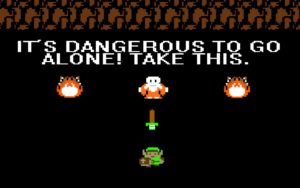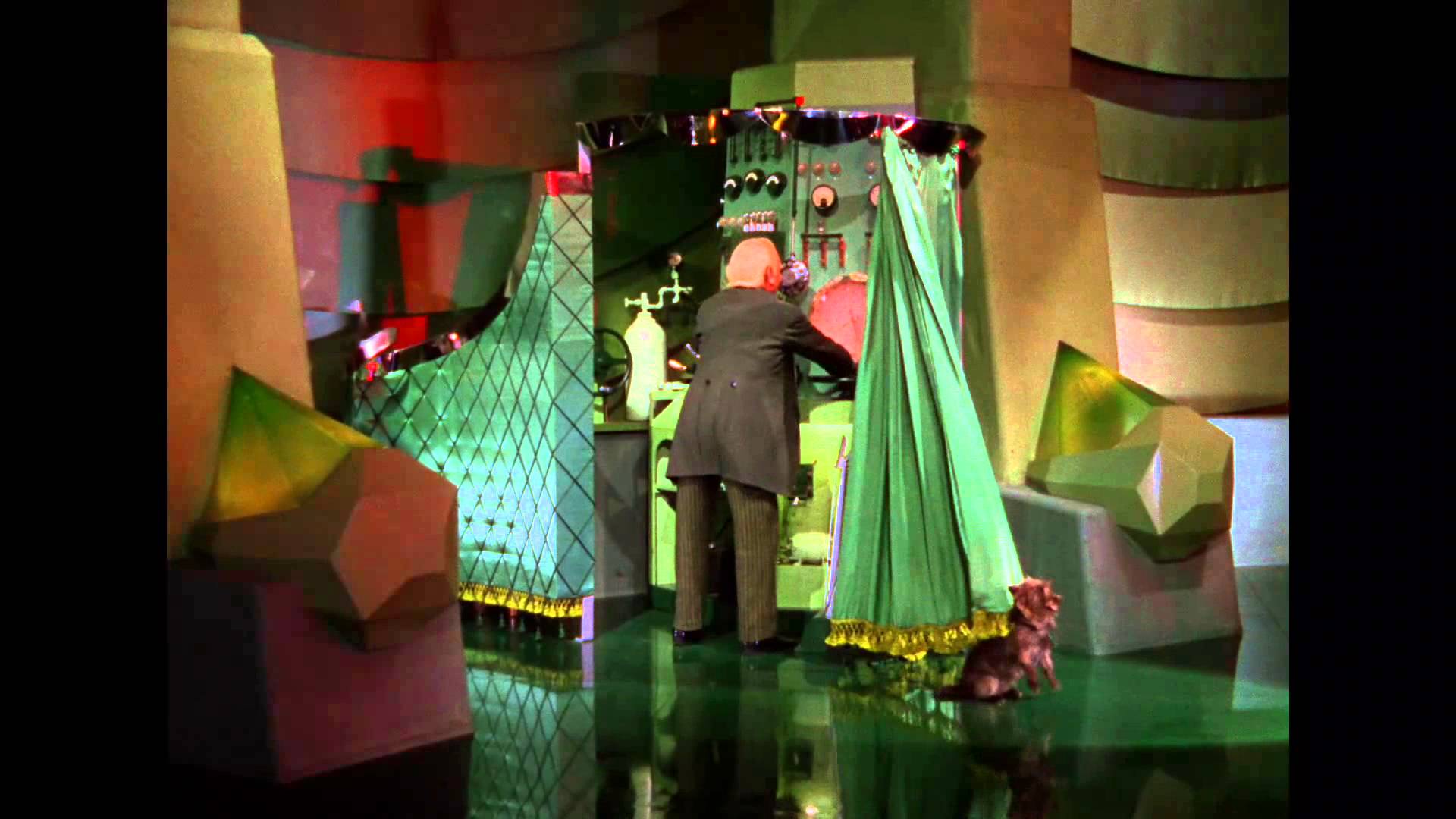 As a child watching The Wizard of Oz, I never suspected a bumbling old man hiding behind a curtain to be the “great and terrible Oz.” I was completely taken aback when Toto pulled back the drapes and revealed the traveling salesman who was pushing all the levers and buttons. I still revel in the concept of a man behind a curtain, but I prefer much darker motives, the pushing of people’s buttons more than any machine, and a more illusory curtain. A good example of this is Brandon Sanderson’s Mistborn trilogy.
As a child watching The Wizard of Oz, I never suspected a bumbling old man hiding behind a curtain to be the “great and terrible Oz.” I was completely taken aback when Toto pulled back the drapes and revealed the traveling salesman who was pushing all the levers and buttons. I still revel in the concept of a man behind a curtain, but I prefer much darker motives, the pushing of people’s buttons more than any machine, and a more illusory curtain. A good example of this is Brandon Sanderson’s Mistborn trilogy.
In the very first book we find our heroine, Vin, taken in by the heroic mentor, Kelsier, who is instigating a plan to destroy the evil and immortal emperor. What they find lurking behind the emperor is much more sinister and complex than any of them had imagined. With many stories, it’s in that moment when our antagonist becomes a mere contagonist and the plot gains that extra dimensional layer, that I find myself moved.
In the original Star Wars series, Darth Vader is a horrible villain, even a danger to his own son, until we discover “the emperor.” Again? What is it with emperors? What a lovely twist when the contagonist proves to be a victim who turns into the final hero. It turns an ordinary hero’s journey adventure story into a redemption story, giving the entire series not only more depth, but the opportunity to add interesting sequels and for Hollywood to bring in some serious money. I’m sure they don’t mind.
I have a book coming out soon through Brick Cave Media called Moon Shadows and I have to tell you, I love to hate my man behind the curtain. He has his reasons, but he’s seriously psycho. From science fiction to fantasy, from mystery to horror, we all wonder if there might be someone hiding in the shadows, someone even worse than the monster we see in the light. As a writer, playing with that suspicion is a good part of the fun. Often, the best suspense lies in the man behind the curtain, or depending on the story, maybe the psycho behind the shower curtain.
 Colette Black lives in the far outskirts of Phoenix, Arizona with her family, 2 dogs, a mischievous cat and the occasional unwanted scorpion. Author of the Mankind’s Redemption Series, The Number Prophecy series, and the upcoming Legends of Power series, Colette writes New Adult and Young Adult sci-fi and fantasy novels with kick-butt characters, lots of action, and always a touch of romance. Find her at www.coletteblack.net
Colette Black lives in the far outskirts of Phoenix, Arizona with her family, 2 dogs, a mischievous cat and the occasional unwanted scorpion. Author of the Mankind’s Redemption Series, The Number Prophecy series, and the upcoming Legends of Power series, Colette writes New Adult and Young Adult sci-fi and fantasy novels with kick-butt characters, lots of action, and always a touch of romance. Find her at www.coletteblack.net

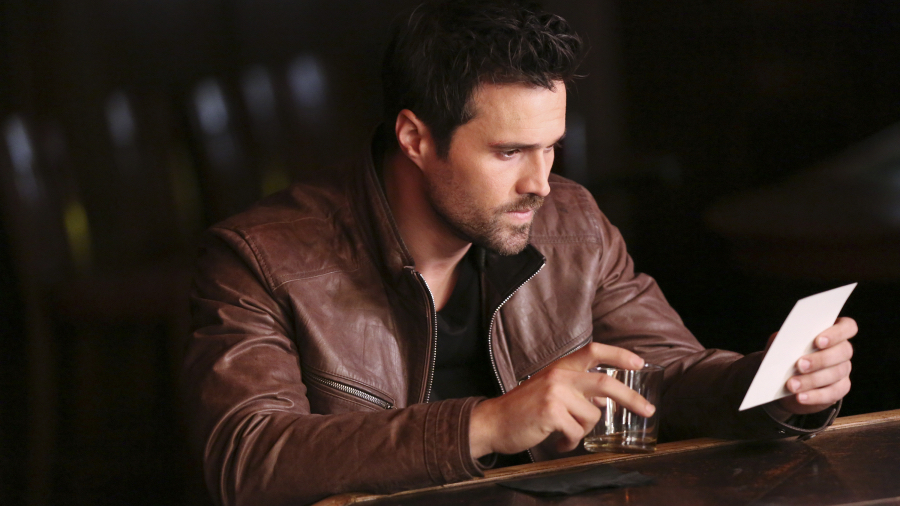 For all of you “Agents of Shield” fans, I think you’ll remember that wrench in your gut when you realized, but didn’t want to admit, that Grant Ward was Hydra. Not only was he Hydra, but he was also quite psycho. Everyone’s favorite character started betraying and killing all of his friends. Except for the recently acquired girlfriend, whom he creepily stalked.
For all of you “Agents of Shield” fans, I think you’ll remember that wrench in your gut when you realized, but didn’t want to admit, that Grant Ward was Hydra. Not only was he Hydra, but he was also quite psycho. Everyone’s favorite character started betraying and killing all of his friends. Except for the recently acquired girlfriend, whom he creepily stalked.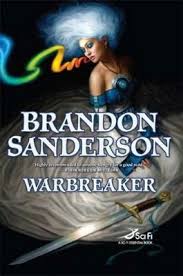 r not effect his own goals or must further them in some way. He can save his friend’s life, it can seem that it’s because he legitimately cares, and we can find out later that it was only because the backstabber needed information. Besides Grant Ward in Agents of Shield, another great example is in Brandon Sanderson’s Warbreaker. (spoiler alert) Throughout the entire novel, Siri finds in Bluefingers a confidante she can trust, until the very end when he and the Pahn Kahl people turn against her and the kingdom. He was the one person she thought she could trust and with that paradigm shift is a plot twist that changes everything.
r not effect his own goals or must further them in some way. He can save his friend’s life, it can seem that it’s because he legitimately cares, and we can find out later that it was only because the backstabber needed information. Besides Grant Ward in Agents of Shield, another great example is in Brandon Sanderson’s Warbreaker. (spoiler alert) Throughout the entire novel, Siri finds in Bluefingers a confidante she can trust, until the very end when he and the Pahn Kahl people turn against her and the kingdom. He was the one person she thought she could trust and with that paradigm shift is a plot twist that changes everything.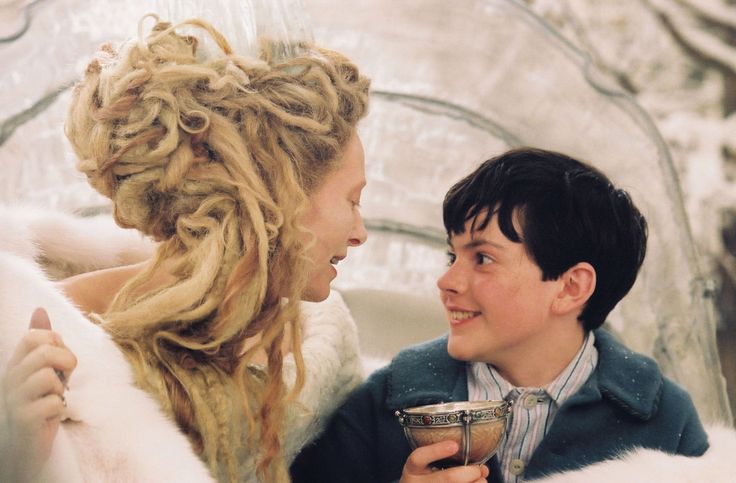 ueen in The Lion, the Witch, and the Wardrobe? We see his betrayal coming, but his poor siblings have no idea until he’s gone. We can unfold the tragedy with carefully placed clues that the reader puts together piece by piece, gradually discerning the awful news that they hate to admit may be true, like in the famed Narnia series. We can also slam the reader with the betrayal for greater impact, putting them suddenly on the edge of their seats as they wait for the protagonist to find out. Either way works and I think the best choice is whichever one fits with the flavor of your book. Is it wrought with mystery so the betrayal is one of many factors or is it a book of many twists, turns, and tragedies where this can be one more layer on the cake?
ueen in The Lion, the Witch, and the Wardrobe? We see his betrayal coming, but his poor siblings have no idea until he’s gone. We can unfold the tragedy with carefully placed clues that the reader puts together piece by piece, gradually discerning the awful news that they hate to admit may be true, like in the famed Narnia series. We can also slam the reader with the betrayal for greater impact, putting them suddenly on the edge of their seats as they wait for the protagonist to find out. Either way works and I think the best choice is whichever one fits with the flavor of your book. Is it wrought with mystery so the betrayal is one of many factors or is it a book of many twists, turns, and tragedies where this can be one more layer on the cake?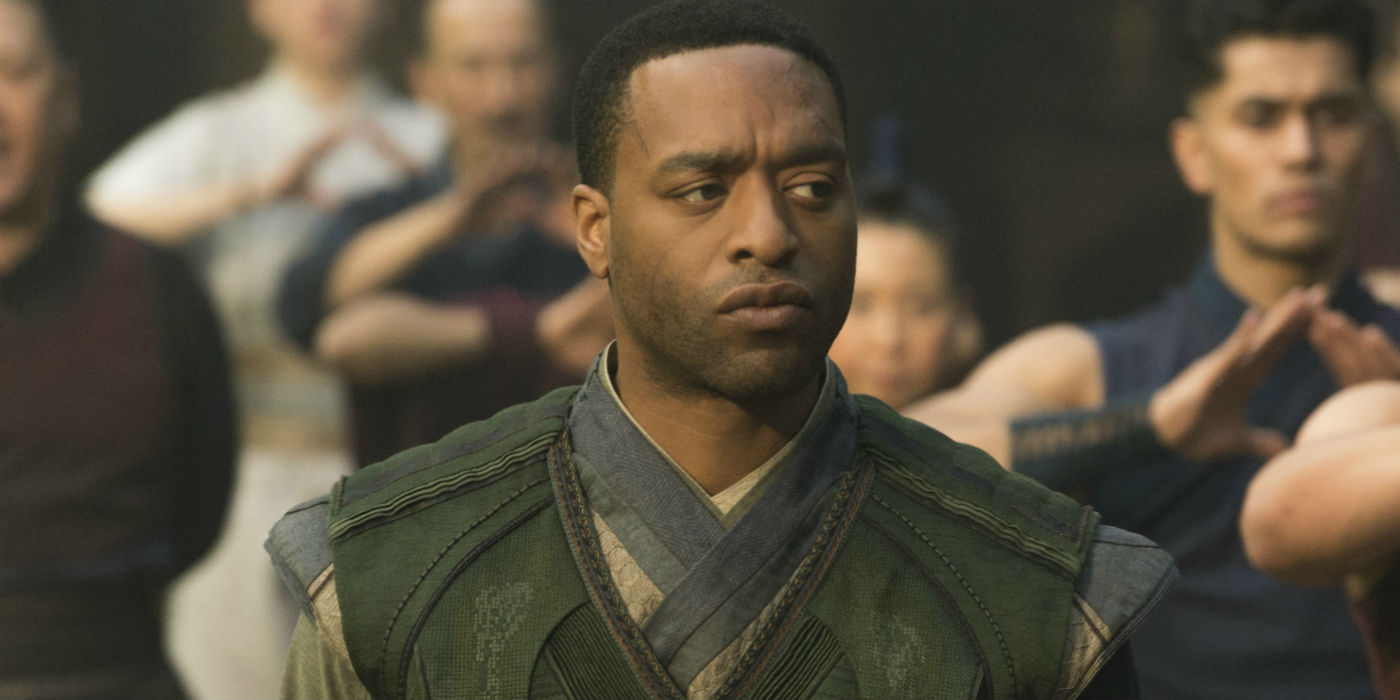 es for him. Mordo’s negative reaction when he discovers their leader has been using forbidden magic all along is a sign that not all is well. Mordo seems to come around, helping Doctor Strange save the world, and it’s not certain what Mordo will do until the moment comes. Even Mordo doesn’t seem certain what he’ll do. And then he turns his back on his friends and becomes the next super-villain. If we hadn’t already known that Anakin becomes Darth Vader, we might have been on the edge of our seats wondering if he’d really turn to the dark side or come to his senses. Because we do know, it becomes an example for the scenario above. We know it will happen, but how and when is the question. I think the unsure betrayer is one of the most compelling and heart-wrenching scenarios in fiction. It gives our protagonist’s friend a great sense of depth as they struggle with the decision. This one is also hard to pull off well, because we must show those forces of good and evil push and pull in a side character while still keeping the protagonist as the focus. Done well, it’s quite powerful.
es for him. Mordo’s negative reaction when he discovers their leader has been using forbidden magic all along is a sign that not all is well. Mordo seems to come around, helping Doctor Strange save the world, and it’s not certain what Mordo will do until the moment comes. Even Mordo doesn’t seem certain what he’ll do. And then he turns his back on his friends and becomes the next super-villain. If we hadn’t already known that Anakin becomes Darth Vader, we might have been on the edge of our seats wondering if he’d really turn to the dark side or come to his senses. Because we do know, it becomes an example for the scenario above. We know it will happen, but how and when is the question. I think the unsure betrayer is one of the most compelling and heart-wrenching scenarios in fiction. It gives our protagonist’s friend a great sense of depth as they struggle with the decision. This one is also hard to pull off well, because we must show those forces of good and evil push and pull in a side character while still keeping the protagonist as the focus. Done well, it’s quite powerful.